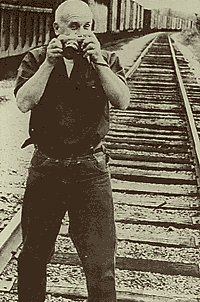 Further along in the introduction to Contemplative Prayer by Thomas Merton, he speaks, in his own unique realization and style, that the prime gift of monastic/spiritual life is the ability to find the internal spiritual strength that is void in contemporary, consumerist society, and being able to share this strength with all those who need it most.
Further along in the introduction to Contemplative Prayer by Thomas Merton, he speaks, in his own unique realization and style, that the prime gift of monastic/spiritual life is the ability to find the internal spiritual strength that is void in contemporary, consumerist society, and being able to share this strength with all those who need it most.In a planet on edge, the opportunity strengthens to bring the full compassion of Krsna consciousness to the suffering hearts of our brothers and sisters. Merton writes:
"This is an age that, by its very nature as a time of crisis, of revolution, of struggle, calls for the special searching and questioning which are the work of the monk in his meditation and prayer. For the monk searches not only his own heart: he plunges deep into the heart of that world of which he remains a part although he seems to have left it. In reality the monk abandons the world only in order to listen more intently to the deepest and most neglected voices that proceed from its inner depth."
This is also Prabhupada's mood. It is our deepest responsibility as devotees, having received the gift of the wisdom from Prabhupada's books, to give it freely and with great intelligence and compassion.
We cannot remain holed up in ourselves or within our temple walls. We only waste away if we do not express to others the seed of devotion within our own hearts.
Ultimately we must bring up all the reserves of courage to face our own inner demons, for it is our duty to understand them, to face them, and to transcend them, only so we can learn to help others to do the same. Merton writes:
"The monk who is truly a man of prayer and who seriously faces the challenge of his vocation in all its depth is by that very fact exposed to existential dread. He experiences in himself the emptiness, the lack of authenticity, the quest for fidelity, the 'lostness' of modern man, but her experiences all this in an altogether different and deeper way that does man in the modern world. The monk confronts his own humanity and that of his world at the deepest and most central point where the void seems to open out to black despair. The monk confronts this serious possibility and rejects it, as Camusian man confronts 'the absurd' and transcends it by his freedom...The monk faces the worst and discovers in it the hope of the best. From the darkness comes light. From death, life."
Or as HH Bhakti-Tirtha Swami often said, we must die before dying, allowing Krsna through His mercy and our sincere effort to destroy the false ego.
Our sincere chanting, our sincere prayer, opens the door for this process to begin and continue, and we must have the courage and humility to allow Krsna to express His love and His neverending desire to deliver us back to Him.
The chanting of the Holy Name of Krsna, our most intimate prayer, is our strength and our guide, and the key to our higher self, by giving us countless opportunities to cast off our lower self.
By doing so, we please Prabhupada by becoming his dynamic, loving servants, empowered to offer the proof of eternal happiness to a world that needs it desperately.
